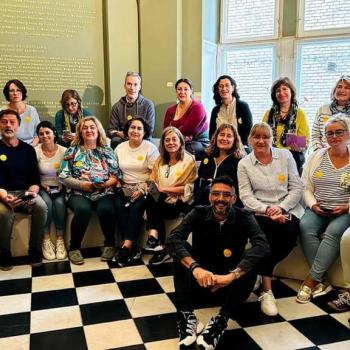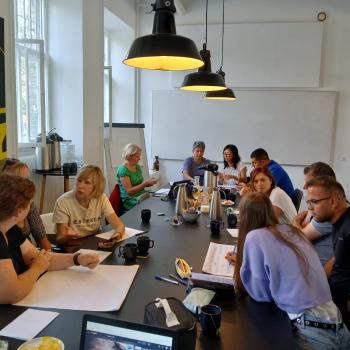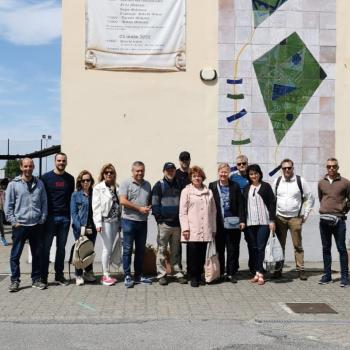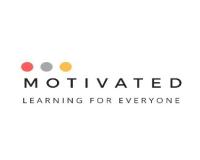
“Inclusive Education and Diversity in the Classroom: Effective Strategies and Teaching Tolerance”
This training course aims at getting to know strategies, methodologies and tools to include all students in education and at learning how inclusive education can work most efficiently and how overcoming segregation of students with special needs is indeed possible. The general aim of this course is to foster excellence and inclusion in education .
Description
Programme of training activities day-by-day:
MONDAY (Day 1)
Welcome and registration
Ice-breaking and Warm Ups. Team-building session
Module 1: Inclusive Education in Europe: basic concepts and current statistics;
From integration to inclusion: the benefits of inclusive education;
Sharing experiences and best practices in working with learners with learning disabilities; Inclusive Education in Spain: Overview;
Diversity in the classroom: the education challenges of a diverse and rapidly changing society; Sharing experiences and challenges in working in diverse and multicultural schools
TUESDAY (Day 2)
Module 2: The personalized didactic plan and the inclusive annual plan;
Membership, relationship and skills: how to create an inclusive classroom;
The role of empathy in working with learners with special needs;
Inclusive teaching methods: a new perspective on universal design for learning;
How to foster students’ tolerance and intercultural awareness?
Resources for a successful tolerant and open-minded classroom
WEDNESDAY (Day 3)
Module 3: Outdoor activity: “Treasure Hunt”: Practical group work: In the shoes of our learners
THURSDAY (Day 4)
Module 4: Using ICT tools and platforms to support the learning process of learners with special needs
Working with parents: challenges, benefits and best practices to involve and communicate with families; Making inclusive education a reality; Practical activity: What can I improve in my school?
FRIDAY (Day 5)
Module 5: Activities for the classroom: Concrete ways to fight stereotypes and prejudices and fostering tolerance in the classroom; How to create welcoming and inclusive school environment for all diversities.
Module 6: Course evaluationand discussion: Round-up of acquired competences; Make the class a safe place for all students
SUNDAY (Day 7)
Module 7: Feedback and dissemination focus; Delivery of Certificates of Attendance
IMPORTANT: PARTICIPANTS COULD ATTEND 5, 6, 7 OR MORE DAYS IN ACCORDANCE TO THEIR APPLICATION.
Learning objectives
Get to know the key principles, benefits and values of inclusive education; Learn about the Spanish inclusive education model of overcoming segregation and including students with special needs in mainstream education; Get acquainted with ICT tools and platforms that support and ease the learning process of students with special needs; Get to know and discuss teaching strategies and practical activities to foster participation and enhance the learning of special needs students; Discover the power of peer-involvement and peer-education; Exchange good practices and discuss challenges with teachers from other EU countries participating in the training course; Get familiar with the key challenges and concerns in acknowledging and promoting diversity; Share and discuss concrete examples, ideas and tools to inspire and support teachers in their lesson planning; Learn how confront head-on stereotypes and personal prejudices, while developing cultural sensibilities and tolerance; Explore different points of view through the participation of simulation exercises and storytelling; Learn new teaching methods and tools that can be applied to promote diversity and tolerance in the classroom; Provide knowledge and skills with a positive attitude towards innovations, feel the necessity for self-education, and adopt a student-centered teaching approach; Develop teaching professional skills, trying to be "an effective model of competence"; Learning to learn competence; Integrate 21st century skills and content in instruction; Technology skills, knowing when and how to use current educational technology, as well as the most appropriate type and level of technology to maximize student learning; Developing habits of mind that can last a lifetime and guide learning and creative thinking; Learn useful methods as a guidelines to test out these new ideas in own teaching practice.
Methodology & assessment
Certification details
At the end of the course, each participant will be awarded a Certificate of Attendance along with Europass Mobility.
Our certificates are in line with the Erasmus Quality Standards and so include the course's title, short description of its learning outcomes (if requested), dates, venue, the name of the course provider and the course director, number of training hours.
We support participants in every step of certification and validation of learning outcomes with specific focus on European instruments and Erasmus+ requirements such as Learning Agreement, Quality Commitment and Europass mobility.
Pricing, packages and other information
-
Price:560Euro
Additional information
-
Language:English
-
Target audience ISCED:Primary education (ISCED 1)Lower secondary education (ISCED 2)Upper secondary education (ISCED 3)
-
Target audience type:TeacherHead Teacher / PrincipalPedagogical Adviser
-
Learning time:25 hours or more
Upcoming sessions
Past sessions
More courses by this organiser

“Artificial Intelligence in Classroom: Teacher's Guide”

EMERGING MODELS IN EDUCATION: FLEXIBILITY, INNOVATION, COLLABORATION



